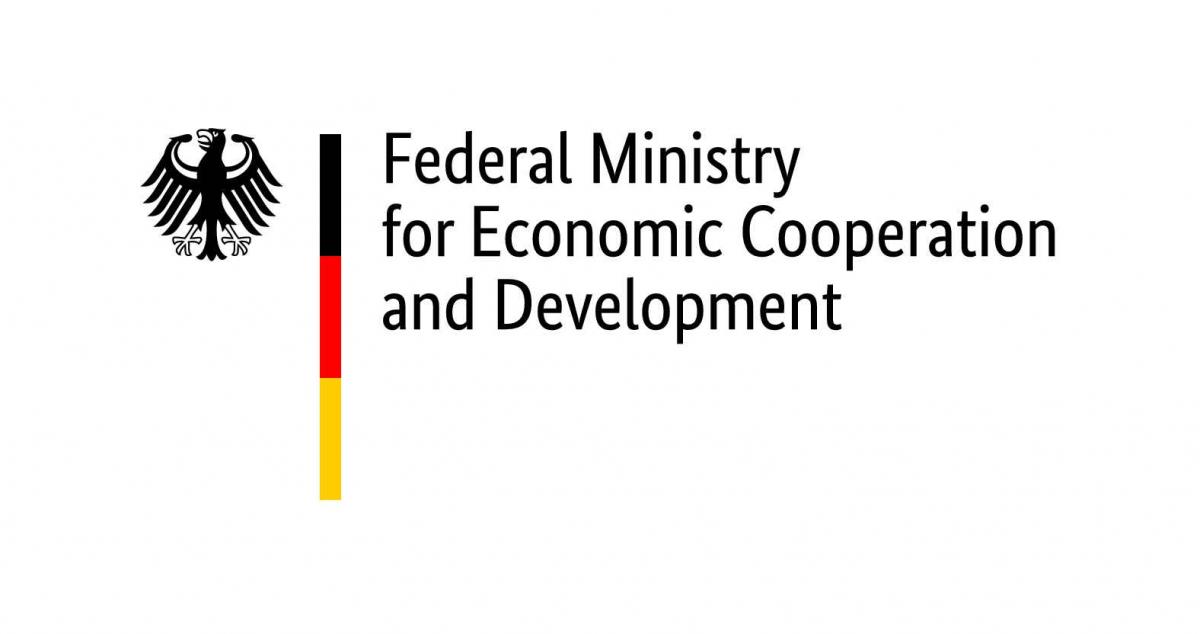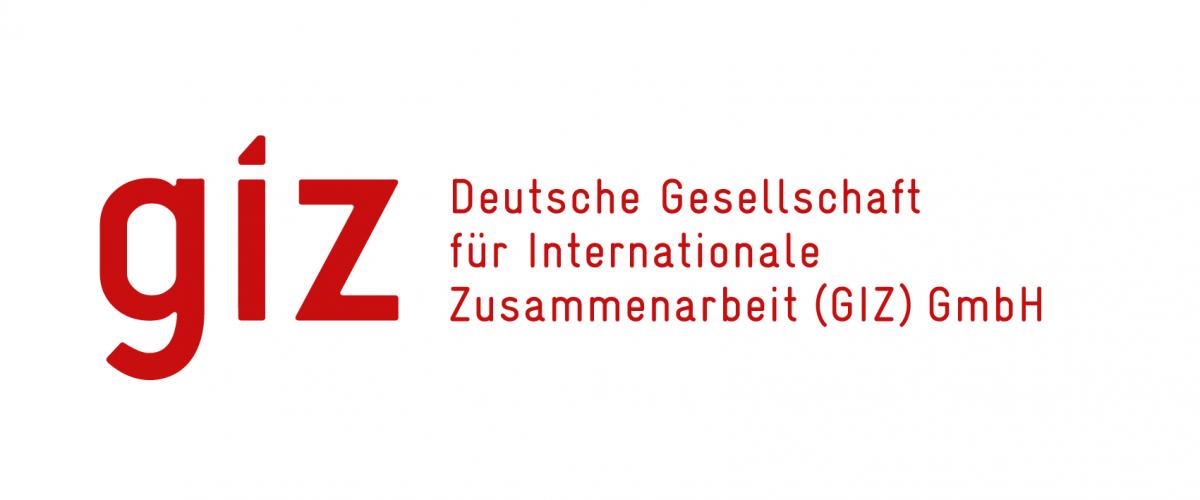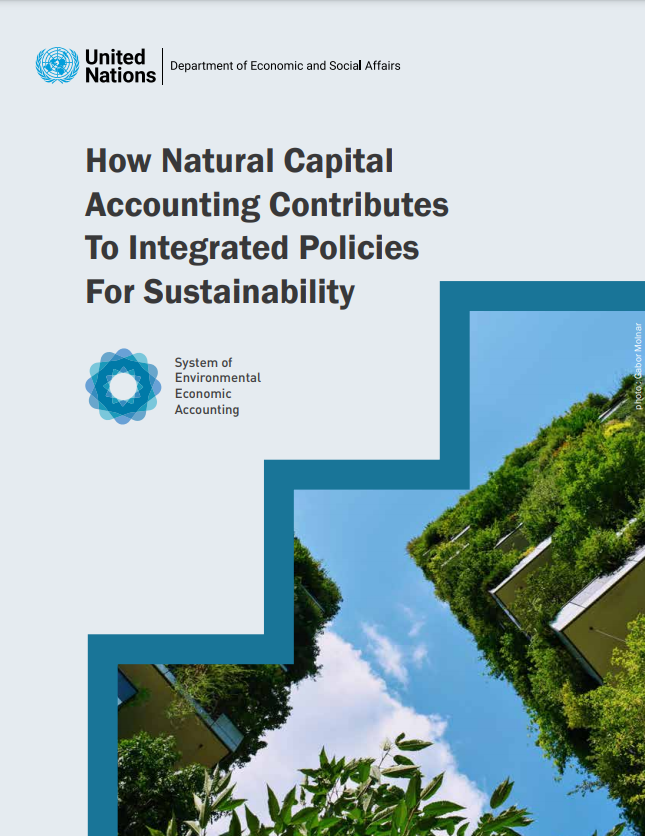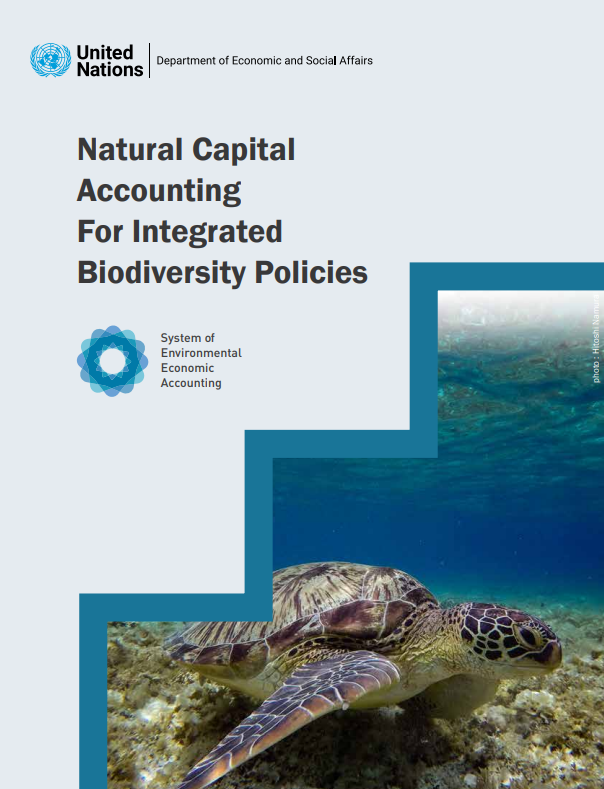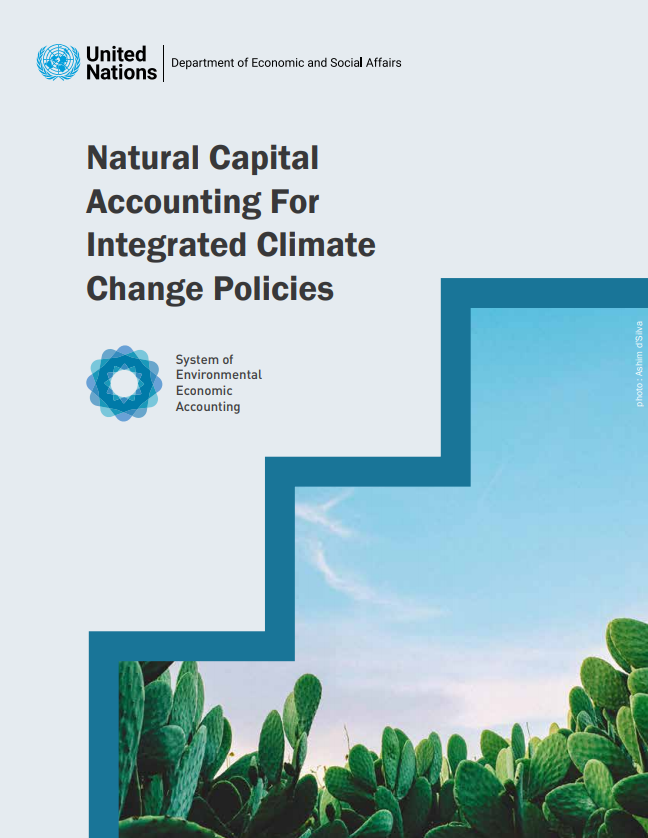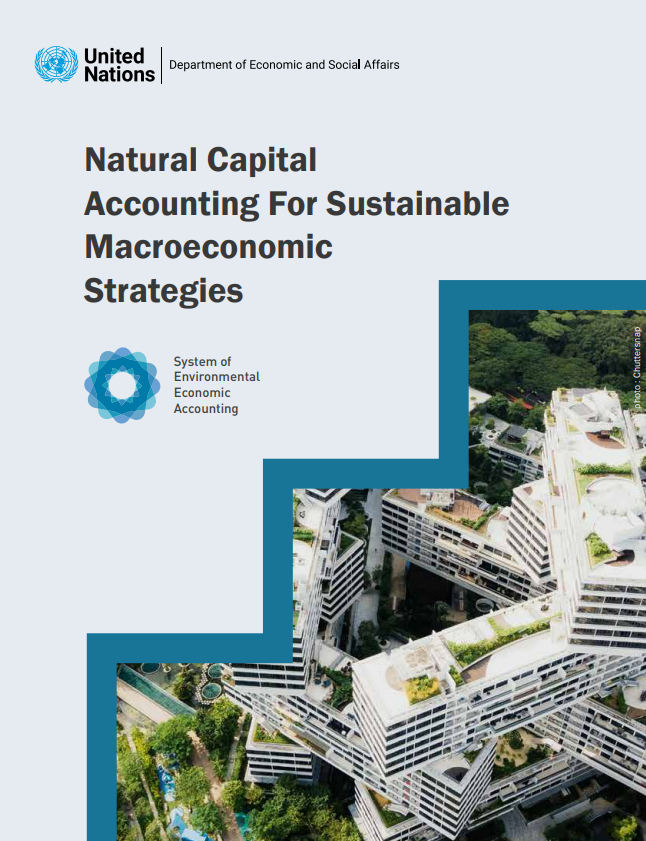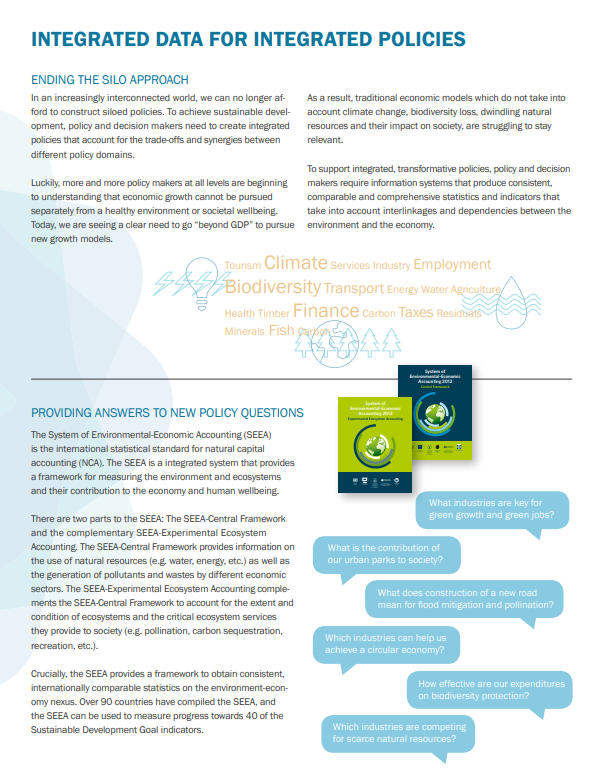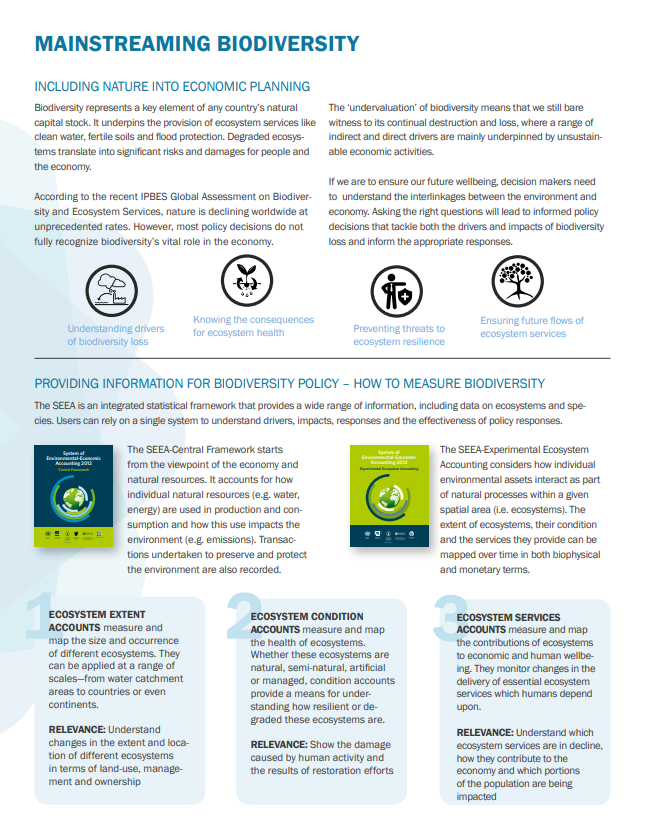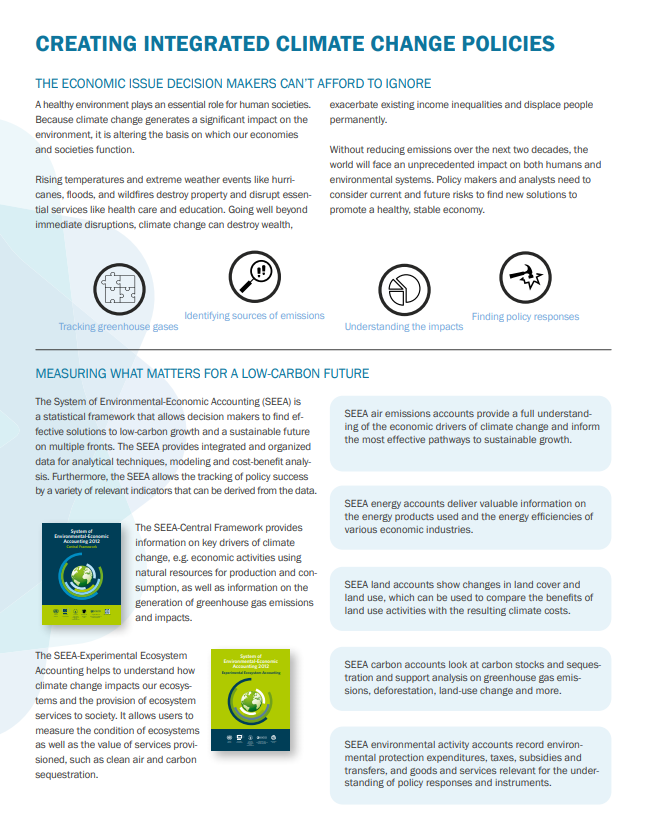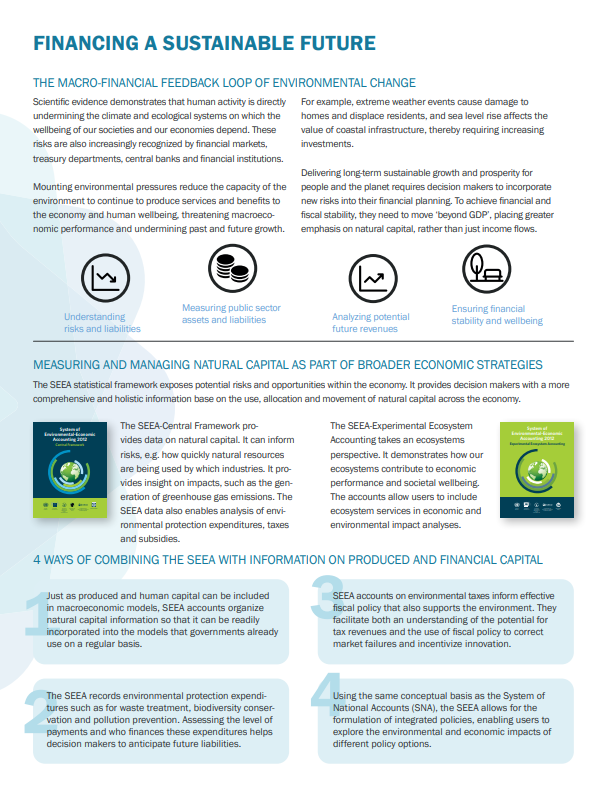EnhaNCA: Enhance Natural Capital Accounting Policy Uptake and Relevance
About the project
The Enhance Natural Capital Accounting Policy Uptake and Relevance (EnhaNCA) project aims to provide materials to increase policymakers' understanding of applications of natural capital accounting (NCA) according to the System of Environmental-Economic Accounting (SEEA).
The project addresses three shortcomings in the environmental and economic policy space:
- A lack of awareness by policy makers on the value added of NCA and how it can address policy needs;
- A lack of systemization of the potential applications of NCA; and
- A lack of compelling case studies on the impact of NCA policy applications.
Outputs
Publications
As part of this project, four publications were developed. These publications are meant for a broad, non-technical audience, including government ministries and central banks:
- How Natural Capital Accounting Contributes to Integrated Policies for Sustainability. Despite the fact that economic, environmental and social issues are interconnected, traditionally policymaking has taken a "silo" approach instead of a systems approach. This publication provides an accessible overview to NCA, the SEEA and how the SEEA uses a systems approach to create effective policies at the environment-economy nexus.
- Natural Capital Accounting for Integrated Biodiversity Policies . Biodiversity is critical for both human well-being and the economy. This paper demonstrates the importance of NCA and the SEEA in the formulation of effective biodiversity policies, with a focus on policies related to ecosystems, ecosystem services and species.
- Natural Capital Accounting for Integrated Climate Change Policies . The Paris Agreement has set ambitious targets for fighting climate change. To achieve these targets, policies must take into account the relationship between the environment, climate and economy. This publication covers how NCA and the SEEA can measure climate change, its drivers and impacts, with an eye towards developing evidence-based policies.
- Natural Capital Accounting for Sustainable Macroeconomic Strategies . Treasury departments, central banks and financial institutions are increasingly concerned by the risks and consequences that can be brought about by poor natural resource management. This publication shows how NCA and the SEEA can be used for policies that go beyond income flows, and that instead place greater emphasis on assets and wealth, including natural capital.
Factsheets
Four factsheets summarizing the key highlights of each publication can be found below:
|
Integrated data for integrated policies
|
|
Creating integrated climate change policies
|
Financing a sustainable future
|
E-Learning
An e-Learning course, "SEEA for Policy Makers" based on the four publications is available here, in English, French, Spanish and Portuguese. This non-technical self-paced e-Learning is geared towards policy makers and analysts, but can also be taken by account compilers. It contains four modules: an overview and modules on biodiversity, climate change and finance policy applications.
Implementation
This project was implemented by the United Nations Statistics Division, with funding from the Federal Ministry for Economic Cooperation and Development of Germany, www.bmz.de and supported by Deutsche Gesellschalft fur Internationale Zusammenarbeit (GIZ) GmbH, www.giz.de. The project took place between 2018 and 2021.
To help ensure that the publications produced under the EnhaNCA project addressed the identified shortcomings in the enviornmental and economic policy space, the publications were written under the guidance of an editorial board. The editorial board operated under the direction of the United Nations Statistics Division and included representatives of IUCN, the World Bank, the Department of Environmental Affairs of South Africa, UNEP-WCMC and Statistics Netherlands.

